Welcome to the breathtaking island of Antigua, where sustainable travel and nature conservation come together to create an eco-tourism haven.
Get ready to embark on a journey that celebrates the island’s pristine landscapes while preserving its precious environment. From eco-friendly accommodations to intimate nature tours, Antigua offers a plethora of opportunities to explore its hidden gems without leaving a trace.
Immerse yourself in the heart of Antigua’s eco-friendly initiatives, where the Green Hotel will spoil you with its commitment to sustainability, and Eco-Tour Antigua will take you on an adventure led by knowledgeable local guides.
Let’s join forces to protect Antigua’s remarkable biodiversity and secure a sustainable future for this Caribbean paradise.
Eco-Friendly Accommodations and Tours
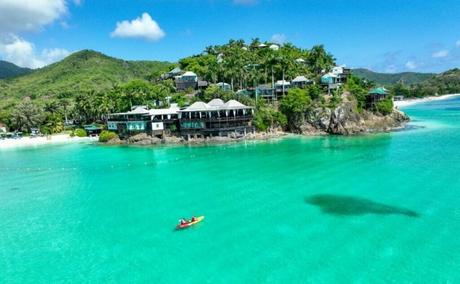
When it comes to Antigua eco-tourism, one cannot overlook the island’s diverse range of eco-friendly lodgings and tours. These range from resorts built with sustainable materials to guides that lead small groups into the heart of the island’s pristine natural landscapes.
For example, the Green Hotel, an eco-resort in the center of the island, is well-known for its dedication to sustainability. It utilizes solar energy, practices waste management, and grows most of its food organically.
Furthermore, eco-tours are an exceptional way to explore the beauty of Antigua without causing harm to its environment. Operators like Eco-Tour Antigua offer intimate group sizes that limit the impact on the environment, employ local guides who possess comprehensive knowledge of the flora and fauna, and are committed to responsible travel practices. These tours also often support local economies by involving community-run businesses and services.
The sustainable approach of these accommodations and tours does not compromise the quality of experience they offer. In fact, they enrich your visit by offering a closer connection to the land and its people. Whether you’re staying in a cottage built from reclaimed materials or kayaking through the mangroves with a local guide, you’re contributing to a sustainable future for Antigua.
Yet, the effectiveness of these eco-friendly initiatives would be limited without the collective effort of visitors and locals alike. This takes us to a critical feature of the eco-tourism industry: public involvement in conservation programs and efforts.
Conservation Projects and Initiatives
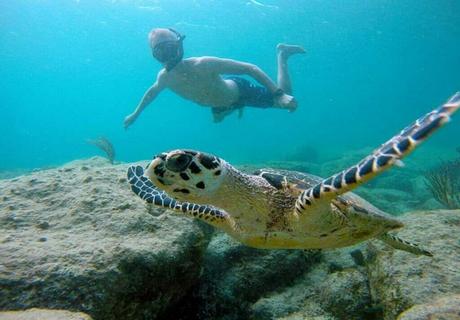
Antigua is a sanctuary abounding with unique species, nestled amid the turquoise seas of the Caribbean. To protect its natural beauty and ensure its sustainability, the island has embraced several conservation projects and initiatives, making it a haven for eco-conscious travelers.
The Offshore Islands Conservation Programme is one such initiative, instrumental in preserving the unique flora and fauna inhabiting Antigua’s offshore islands. The initiative takes a proactive strategy, concentrating on invasive species removal and indigenous habitat restoration.
The emphasis is on building a sustainable environment in which nature may thrive without intervention from humans. This ensures not only a healthier ecosystem for future generations but also preserves the breathtaking vistas that make the island a tourist hotspot.
Moreover, Antigua’s commitment to conservation extends beyond the boundaries of its terrestrial habitats. The island boasts rich marine biodiversity, which is safeguarded by initiatives like the Antigua Sea Turtle Project. This initiative concentrates on monitoring, researching, and conserving the island’s sea turtle populations, which are integral parts of Antigua’s marine ecosystem.
Participation in such conservation projects offers tourists an unforgettable and insightful experience. It allows them to understand the nuances of environmental conservation and witness firsthand the magnificent wildlife these efforts aim to protect. This also strengthens their connection to the land and fosters a sense of responsibility to tread lightly and minimize their impact.
Parallel to the biodiversity conservation efforts, Antigua is also taking firm steps towards clean and renewable energy. Governmental support and local business involvement have seen an uptick in renewable energy projects.
Numerous resorts are transitioning to solar power, and wind energy is being harnessed to meet the island’s power needs. These endeavors not only signify Antigua’s proactive stance against climate change but also ensure the sustainability of its resources.
Antigua’s conservation projects and initiatives beautifully intertwine the health of the environment with the prosperity of its tourism sector. However, keep in mind that these activities are part of a wider eco-system that requires the support of responsible tourists. This emphasizes the significance of sustainable travel habits, which are an important part of eco-tourism.
Responsible Travel Tips

As a tourist to Antigua, you play an important part in supporting the island’s eco-tourism activities and ensuring that your stay contributes positively to its sustainability. Embracing responsible travel habits can go a long way in preserving Antigua’s charm while creating memorable experiences.
One of the easiest ways to contribute is through your culinary choices. Whenever possible, choose local and organic food options. Not only does this provide you with the freshest produce and authentic local flavors, but it also supports Antiguan farmers and decreases the carbon footprint associated with imported food. Additionally, dining at local restaurants contributes to the island’s economy and offers an insight into Antigua’s vibrant culture.
When exploring the stunning landscapes and natural attractions of Antigua, it’s crucial to respect the local wildlife. This includes maintaining a safe distance from wild animals and refraining from feeding them. Also, resist the urge to take natural souvenirs, such as shells or plants, from their habitats. These actions protect Antigua’s biodiversity and ensure that future visitors can enjoy the same unspoiled beauty.
Water conservation is another vital aspect of sustainable travel. Water is a valuable resource in Antigua, as it is on many Caribbean islands. Simple actions like taking shorter showers, reusing hotel towels and turning off taps when not in use can have a significant impact on conserving this critical resource. These practices are easy to adopt and can contribute meaningfully to the island’s sustainability efforts.
Supporting the local economy is a vital aspect of responsible tourism. This can be achieved by purchasing locally made products and services. Purchasing a handcrafted memento, dining at a family-owned restaurant, or taking a tour with a local guide not only delivers a real Antiguan experience but also directly helps the local economy.
Aside from these, there are a plethora of other responsible travel practices you may employ to guarantee your vacation adheres to Antigua’s eco-tourism values. With these pointers and a better understanding of Antigua’s eco-friendly activities, you’re ready to go on a journey that will be as rewarding for you as it will be for this Caribbean jewel.
Impact of Eco-tourism
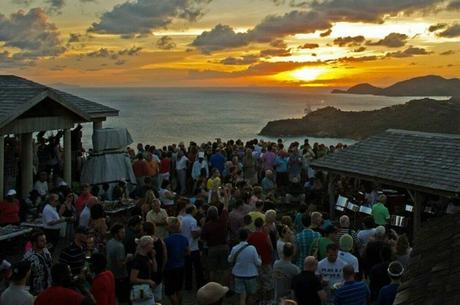
Eco-tourism has a profound impact on Antigua, providing not just a sustainable economic model but also fostering a greater sense of environmental stewardship. Ecotourism has contributed significantly to employment creation in terms of economics. Jobs related to eco-tourism range from tour guides to conservation specialists to sustainable hospitality roles, all of which contribute to the local economy.
The ripple effects of eco-tourism go beyond economics, as it plays an essential part in environmental conservation. It funds the upkeep of national parks, animal reserves, and marine protected areas, ensuring that these natural riches are conserved for future generations. Eco-tourism also incentivizes the protection of wildlife and habitats, as the health of these ecosystems directly impacts the quality of the tourism experience.
Furthermore, eco-tourism promotes environmental education and awareness among both residents and visitors. It provides tourists with a unique opportunity to learn about Antigua’s sensitive ecosystems, cultivating a better regard for the environment in the process. This newfound appreciation often encourages visitors to adopt more sustainable behaviors even after they return home.
For the local community, it reinforces the importance of preserving their natural heritage, leading to more community-driven conservation initiatives. Thus, the effects of eco-tourism in Antigua are multifaceted, adding to the island’s long-term viability.
Engaging with Local Culture
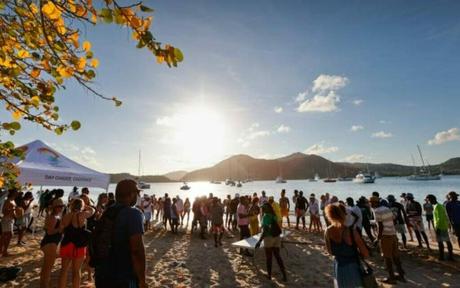
Ecotourism in Antigua is about more than simply experiencing the island’s natural beauty, saving animals, and supporting green projects; it’s also about connecting with the dynamic local people.
The inhabitants of Antigua are as charming as the island’s gorgeous beaches and verdant woods. Visitors may immerse themselves in Antiguan culture through eco-tourism, giving an even fuller vacation experience.
One way to engage with the local culture is through community-based tourism initiatives. These initiatives often managed and operated by local communities, provide authentic experiences for tourists while ensuring the economic benefits are channeled directly to the community.
Whether it’s exploring the historical sites with a local guide, learning traditional Antiguan crafts, or participating in local festivals, these initiatives offer tourists a unique glimpse into Antigua’s cultural heritage.
Another exciting aspect of engaging with Antigua’s local culture is the island’s cuisine. Food is an important element of every culture, including Antigua’s. Antiguan cuisine is based on seafood, fresh fruits, and locally grown veggies, and each dish offers a tale about the island’s history and way of life. Visitors can participate in cooking classes or farm tours to learn more about the island’s gastronomic delights and sustainable food practices.
Finally, visitors can support local artisans by purchasing handmade crafts and artworks. These pieces not only serve as unique souvenirs but also help to preserve traditional crafts and provide a livelihood for local artisans. Every piece you buy contributes to the sustainability of Antigua’s cultural heritage and supports its eco-tourism goals. As you plan your vacation to Antigua, keep in mind that engaging with the local population is an important element of your eco-tourism adventure.
FAQ
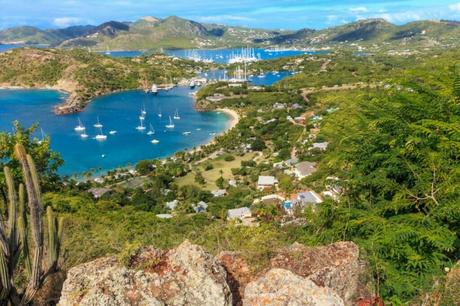
How is Antigua implementing sustainable tourism?
Antigua is implementing sustainable tourism through various initiatives. The island has embraced eco-friendly accommodations and tours, such as the Green Hotel, which utilizes solar energy and practices waste management. Eco-Tour Antigua offers intimate group sizes and employs local guides committed to responsible travel practices. Antigua is also participating in conservation programs aimed at maintaining biodiversity and protecting the marine ecology, such as the Offshore Islands Conservation Programme and the Antigua Sea Turtle Project. Furthermore, the island is moving toward clean and renewable energy by shifting to solar and wind power.
What is ecological in tourism?
Ecological tourism, sometimes known as eco-tourism, is a type of travel that focuses on environmental sustainability and conservation. It involves visiting natural areas with minimal impact on the environment, promoting biodiversity conservation, and supporting local communities. Ecological tourism seeks to improve environmental awareness, establish a stronger connection to nature, and contribute to the long-term viability of locations. It often involves eco-friendly accommodations, responsible travel practices, and engagement in conservation projects and initiatives.
What are the environmental issues in Antigua?
Antigua faces several environmental issues that require attention and action. One major worry is the preservation of the island’s biodiversity and ecosystems, as it is home to rare plants and wildlife.Rising sea levels and greater vulnerability to extreme weather events are two of the issues posed by climate change. Pollution, both land-based and marine, threatens the island’s delicate ecosystems. Furthermore, sustainable management of natural resources, such as water conservation and waste management, is critical for Antigua’s environmental integrity.. Eco-tourism programs, conservation projects, and the move to renewable energy sources are all being implemented to solve these challenges.

